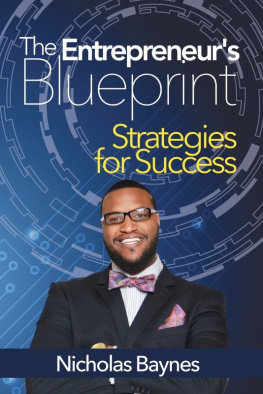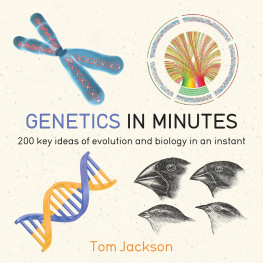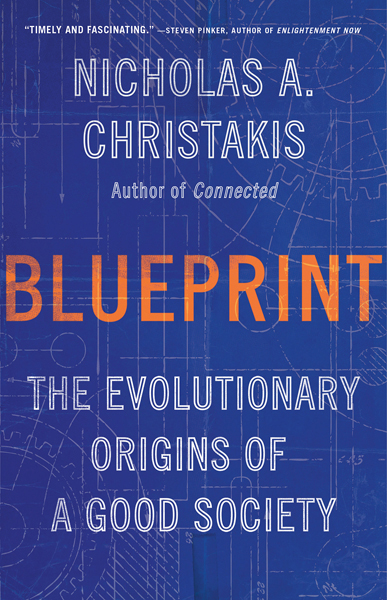Copyright 2019 by Nicholas A. Christakis
Cover 2019 Hachette Book Group, Inc.
Hachette Book Group supports the right to free expression and the value of copyright. The purpose of copyright is to encourage writers and artists to produce the creative works that enrich our culture.
The scanning, uploading, and distribution of this book without permission is a theft of the authors intellectual property. If you would like permission to use material from the book (other than for review purposes), please contact permissions@hbgusa.com. Thank you for your support of the authors rights.
Little, Brown Spark is an imprint of Little, Brown and Company, a division of Hachette Book Group, Inc. The Little, Brown Spark name and logo are trademarks of Hachette Book Group, Inc.
The publisher is not responsible for websites (or their content) that are not owned by the publisher.
The Hachette Speakers Bureau provides a wide range of authors for speaking events. To find out more, go to hachettespeakersbureau.com or call (866) 376-6591.
The diversity of our cultures and personal identities masks the fact that we are one. In this brilliant, beautiful, and sweeping book, Christakis shows how eight universal human tendencies have bound us together and given us dominion over our planet, our lives, and our common fate. A masterful achievement that is surely the best and most original science book of the year.
Daniel Gilbert, author of Stumbling on Happiness
Nicholas Christakis is a pioneer in bridging the conceptual chasm between the choices of individual people and the shaping of an entire society. In this timely and fascinating book, he shows how the better angels of our nature, rooted in our evolutionary past, can bring forth an enlightened and compassionate civilization.
Steven Pinker, author of Enlightenment Now
In a book of great wisdom and unusual breadth, Christakis pulls together philosophy, history, anthropology, sociology, genetics, and evolutionary biology to make an extraordinarily optimistic argument: evolution has prewired us for goodness. At a moment when the dark history of the early twentieth century suddenly seems relevant again, its a relief to be reminded of why so many efforts to reengineer human society have failedand of why the better side of human nature often triumphs in the end.
Anne Applebaum, author of the Pulitzer Prize winner Gulag: A History
In this wisely optimistic book, Christakis explores the evolutionary imperative of forming bonds that are both cultural and genetic. His writing is colorful, personal, and often exuberant.
Andrew Solomon, author of Far from the Tree
Christakis brings to general readers his most famous theory: the genetic profile of both humans and animals dictates the types of societies that they create. Using a plethora of accessible examples that range from the social behavior of dolphins and chimpanzees to the tenets that link human behavior in a myriad of settings, from reality shows to arranged marriages, along with a generous look into the authors own past, Christakis reminds us that leadership, friendship, and group tendencies are all rooted in the most fundamental mechanism of our biological sorting: natural selection. A must-read for anyone interested in how we find ourselves wholly divided into political, religious, and workplace silos, and where these separations may lead us.
Hope Jahren, author of Lab Girl
A remarkable achievement! Christakis explains, in the most lucid and accessible way imaginable, how our genetic and cultural heritages are deeply intertwined. The story of human nature is no fairy tale, but it nevertheless reveals our potential, and our proclivity, for good.
Angela Duckworth, author of Grit
In this brilliant and humane book, Christakis defends an optimistic view of humanity. Human nature is not solitary and brutishwe are social beings, capable of intimate ties and great kindness, blessed with extraordinary potential. Blueprint is clear, persuasive, and vitally important.
Paul Bloom, author of Against Empathy
Christakis has found that all human cultures converge on a consistent style of social network, and in Blueprint he explores the reasons why. The answer, he boldly argues, lies in our genes. Digging widely, Christakis shows that a gene-based account does not have to challenge the impact of culture, nor does it commit the analysis to reductionism or determinism. Blueprint stakes a powerful claim for a richer incorporation of biology into the social sciences.
Richard Wrangham, author of Catching Fire
In Blueprint, Christakis shows that goodness has a biological purpose. More than an ideal pushed upon us by moral and religious leaders, goodness is a survival tactic demanded by our very genes. Christakiss argument about our common humanity, made in such a powerful and vivid fashion, is an important one for these unstable times. He shows that kindness and love are not merely things we can dobut things we must do.
Brandon Stanton, founder of Humans of New York
Tribalism is all around us, but it does not have to be. After all, we are all human. In lively and engaging prose, Christakis shows what is possible, and what we must do.
Eric Schmidt, former chairman of Google
Mixing brilliant insights with vivid and memorable storytelling, Blueprint is both deeply scholarly and, at the same time, a genuine pleasure read.
Greg Lukianoff, coauthor of The Coddling of the American Mind
Come for the gripping stories about shipwrecks, communes, and Antarctic outposts. Stay for the sociology of networks. As social connectivity and the pace of change both increase in the twenty-first century, Christakis is the essential guide, and this is the essential book. A joy to read, and a warning about the challenges of creating new societies and institutions within which real human beings can flourish.
Jonathan Haidt, coauthor of The Coddling of the American Mind
A magnificent achievement. If you think you understand human nature, think again; Christakis will open your eyes and make you gasp. A special bonus: his book is inspiring and deeply optimistic. The perfect book for our time.
Cass R. Sunstein, coauthor of Nudge
As a historian, I probably tend to overemphasize the darker side of human natureour remarkable capacity as a species for generating war and revolution, manias, and panics. As a physician and a social scientist, Christakis is here to tell me to lighten up. There is more that unites us than divides us, he argues in this deeply erudite and engaging book, and society is basically good. If, like me, you respond to that claim with skepticism, you have a treat in store. Christakis will change your view of the naked ape.
Niall Ferguson, author of The Square and the Tower
We live in a time rife with us versus them divisions based on class, religion, ethnicity, and politics. But in this majestic, important, and enjoyable book, Christakis rightfully reminds us that we also evolved to live together, cooperate, and thrive in complex, diverse social groups. Now more than ever we need to understand and tap into these deep and fundamental adaptations that help us live and work side by side, value each other, and pursue common cause.







